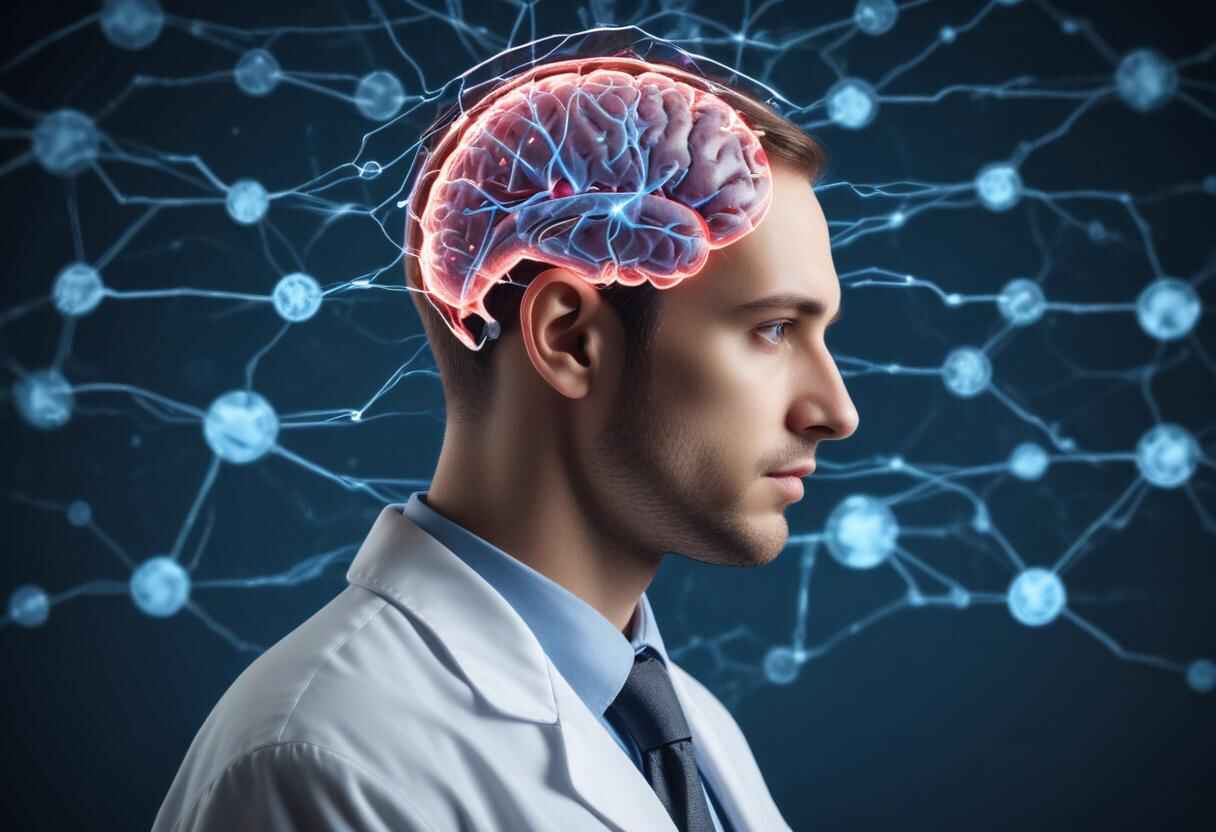Digital technology has quickly changed many parts of our lives, including how we talk to each other, do our jobs, and take care of our health. In the areas of mental health and brain disorders, new digital tools are making a big difference. They provide new ways to diagnose, treat, and manage these conditions. This article looks at how important digital technology is in these fields and how it can greatly improve care and patient health.
Digital Diagnostics and Monitoring
Digital technology is now a big part of diagnosing and monitoring mental health and brain conditions. Old methods like interviews and paper questionnaires are being replaced by digital tools that work better and faster.
- Wearable Devices: Gadgets like smartwatches and fitness trackers can keep an eye on your health in real-time. For brain conditions like epilepsy, they can spot seizures and alert doctors or caregivers. For mental health, they track things like stress, sleep, and physical activity, giving important information for treatment.
- Mobile Apps: Many apps help people check and monitor their mental health. These apps use trusted questionnaires to screen for issues like depression, anxiety, and PTSD. Some advanced apps use artificial intelligence (AI) to analyze what users input and give personalized advice.
- Telehealth and Telemedicine: Telehealth lets people have remote appointments with mental health professionals and neurologists, making it easier to get care, especially in remote areas. Video calls can be used for follow-ups, therapy, and some diagnostics.
Therapeutic Interventions
Digital technology is also crucial in treating mental health and brain conditions.
- Digital Therapeutics: These are software-based treatments backed by evidence. For example, digital cognitive behavioral therapy (CBT) programs help manage anxiety, depression, and insomnia. They can be as effective as face-to-face therapy and can be accessed anytime.
- Virtual Reality (VR): VR is used to treat mental health conditions by creating controlled environments. For example, VR exposure therapy helps people with PTSD by exposing them to triggers safely. In neurology, VR helps stroke patients regain motor skills through fun and interactive exercises.
- Neurofeedback: This method trains people to control their brain waves using real-time feedback from EEG devices. It shows promise for treating ADHD, anxiety, and epilepsy. Digital platforms and apps have made it easier for people to do neurofeedback training at home.
Data-Driven Insights and Personalized Medicine
Using digital technology in mental health and neurology has created a huge amount of data. When this data is properly analyzed, it can give us a better understanding of these conditions and help create more personalized treatments.
- Big Data and Machine Learning: Machine learning algorithms can look at large amounts of data to find patterns and predict what might happen. For example, by looking at data from health records, social media, and other sources, these algorithms can spot people at high risk of mental health issues and suggest early interventions. In neurology, machine learning helps diagnose complex conditions like multiple sclerosis and predict how diseases like Parkinson’s will progress.
- Genomics and Precision Medicine: Advances in genetics, along with digital tools, are leading to precision medicine. Genetic tests can show if someone is likely to develop certain mental health or neurological conditions, allowing for customized treatment plans. Digital platforms can combine genetic information with other health data to offer personalized care recommendations.
Challenges and Ethical Considerations
Digital technology offers many benefits for mental health and brain care, but there are also important challenges and ethical issues to consider.
- Privacy and Security: Collecting and storing sensitive health data can risk patient privacy. It’s crucial to have strong data protection and follow rules like HIPAA (Health Insurance Portability and Accountability Act) to keep patient trust.
- Digital Divide: Not everyone has access to digital technologies. There’s a danger that digital health tools could worsen existing healthcare inequalities. We need to make sure these technologies are available to everyone, including people in low-income or rural areas.
- Effectiveness and Regulation: While many digital health tools look promising, it’s important to test them thoroughly through clinical trials and other research. We also need regulatory systems to make sure digital treatments are safe and effective.
- Ethical Use of AI: Using AI in mental health and neurology brings up ethical questions, like how transparent the algorithms are and whether they might be biased. We need to create ethical guidelines and oversight to ensure AI is used fairly and responsibly.
Future of Digital Technology in Mental Health and Neurology
The future of digital technology in mental health and neurology looks very promising, with many exciting developments on the horizon.
- Integration with Traditional Care: Digital tools will be used alongside traditional healthcare methods, creating a mix that uses the better of both. This will improve how care is provided and help patients get better results.
- Advanced AI and Machine Learning: AI and machine learning will get even better, leading to more accurate diagnoses, personalized treatments, and predictions. This will help in preventing and managing mental health and brain conditions more effectively.
- Patient Empowerment: Digital technologies will give patients more control over their health. Tools for self-monitoring, learning resources, and virtual support groups will help people manage their mental health and neurological conditions more actively.
- Global Collaboration: Digital technology will make it easier for researchers, doctors, and patients around the world to work together. This will speed up the creation of new treatments and help share the better care practices globally.
Conclusion
Digital technology is becoming more important in mental health and neurology. It helps improve diagnosis and monitoring, offers new treatments, and allows for personalized medicine. These technologies are changing how care is given and making patient outcomes better. However, we need to address challenges and ethical issues to make sure everyone benefits from these innovations. Looking ahead, the ongoing integration and advancement of digital technology in these fields promise a healthier and fairer world.
